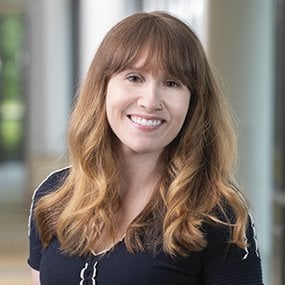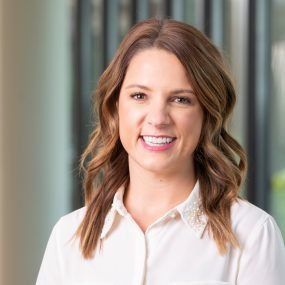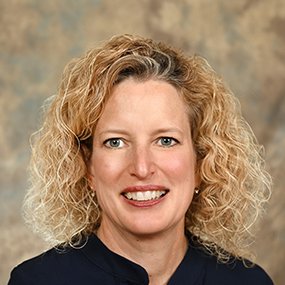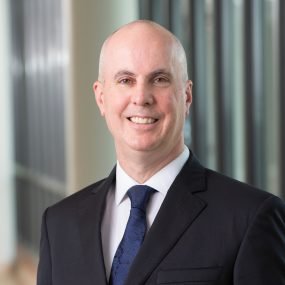Anxiety Disorders Treatment
Anxiety Disorders Treatment Program at Lindner Center of Hope
Anxiety can strike anyone. Anxiety and the accompanying distresses they create can inflict a staggering toll on individuals and family members. Other physical and mental illnesses often co-occur with anxiety and can lead to additional problems. Panic attacks, for example, are a common form of anxiety disorders. Fortunately, effective anxiety disorder treatment can alleviate symptoms and allow patients to live meaningful lives.
Anxiety treatment programs at Lindner Center of Hope deliver results. Comprehensive inpatient, outpatient and residential treatment programs, personalized to the needs of each individual, teach patients effective solutions for overcoming anxiety. To learn about Lindner Center of Hope’s Residential Anxiety Treatment click here.
Lindner Center of Hope’s proven approach to anxiety disorder treatment reflects the latest professional advancements and protocols as well as proven techniques for treating anxiety, including a powerful combination of Cognitive Behavioral Therapy (CBT), and medication therapy. Individualized therapy and education for both patient and family help patients manage anxiety and lead productive, rewarding lives.
Inpatient Anxiety Disorders Treatment Program
Inpatient services at Lindner Center of Hope provide scientifically advanced and compassionate care for adults and adolescents needing stabilization and assessment. Anxiety specialists diagnose and treat patients with an individualized plan tailored to each patient’s unique needs. Multidisciplinary team members deliver a proven combination of therapy and medication treatments, when necessary. The patient’s family also becomes actively involved in the treatment.
Who Benefits from an Inpatient Anxiety Treatment Program
- Adults who are struggling with anxiety disorders
- Patients who need a more intensive, focused treatment environment for recovery
Outpatient Anxiety Disorders Treatment Program
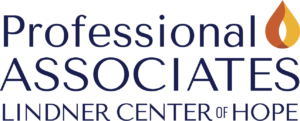 Comprehensive outpatient services led by the clinical practice group, Lindner Center of Hope Professional Associates (LCOHPA), tailor an anxiety treatment program for each patient, using a combination of the newest protocols and proven techniques for treating anxiety. Adolescents or adults struggling with anxiety disorders participate in meaningful individual and family therapy while maintaining normal life activities.
Comprehensive outpatient services led by the clinical practice group, Lindner Center of Hope Professional Associates (LCOHPA), tailor an anxiety treatment program for each patient, using a combination of the newest protocols and proven techniques for treating anxiety. Adolescents or adults struggling with anxiety disorders participate in meaningful individual and family therapy while maintaining normal life activities.
Who Benefits from Outpatient Anxiety Treatment Program
- Individuals with anxiety disorders who are able to participate successfully in regularly scheduled outpatient visits on their own or with family or support individuals.
- Patients who can work closely with a multidisciplinary team to overcome the challenges of anxiety disorders
Partial Hospitalization for Adults and Anxiety Disorders Treatment Program
Lindner Center of Hope is committed to providing the full spectrum of care for adults suffering with mental illness. When an adult’s daily functioning is impaired by mental illness, yet criteria is not met for hospitalization, the Adult Partial Hospitalization Program (PHP) provides intensive treatment in a safe and therapeutic environment, without full hospitalization. Partial hospitalization helps patients progress to the point where standard outpatient appointments can be effective. This program is also used as a step-down program from hospitalization, with the intent of gradually easing an adult back into their home environment.
The program operates Monday through Friday from 8:30 a.m. to 4:30 p.m. and enrollees attend 5 days per week for up to 4 weeks. The program offers some flexibility in design, so that the PHP treatment team and the enrollee can work together to create the right treatment plan for each individual.
Who Benefits from a Partial Hospitalization Program
The Adult Partial Hospitalization Program (PHP) at Lindner Center of Hope benefits individuals, ages 18 and older, who are experiencing emotional or behavioral issues significant enough to affect daily functioning or quality of life. Patients may be suffering with diagnoses including, but not limited to:
- Mood disorders, such as depression and bipolar disorder
- Anxiety disorders
- Eating disorders
- Adjustment disorders
- Thought disorders not requiring hospitalization, such as paranoia and hallucinations
- Patients who need a more intensive, structured program than traditional outpatient visits can provide
- Patients who may not require hospitalization, but who may benefit from hands-on intensive day-long therapy without requiring an overnight stay
- Patients transitioning from hospitalization who need on-going, intensive care
Premier Assessment and Residential Anxiety Disorders Treatment
Sibcy House at Lindner Center of Hope is a specialized and enhanced, rich therapeutic residential environment offering comprehensive diagnostic assessment and residential treatment programs for individuals age 18 and older, suffering with complex, co-morbid mental health and addiction issues. A renowned, multi-disciplinary clinical team uses state-of-the science technology, evidence-based treatment modalities (including DBT and ERP) and clinical expertise to accurately diagnose patients, create individualized treatment plans, and provide intensive treatment through individualized and group therapy to improve overall treatment trajectory.
Highlights of offerings:
- 10-day Comprehensive Diagnostic Assessment (Neuropsychological testing, sub-specialty evaluations and assessments and ongoing 24 hour observation with feedback and next steps; Neurological assessment and MRI as indicated)
- Treatment Initiation– Individual and Group Therapy with foundation in Dialectical Behavior Therapy.
- Treatment Extension – Ongoing Individual and Group Therapy
Highlights of offerings:
- 10-day Stabilizing Evaluation
- Add-on Neuropsychological Testing and/or Treatment Initiation
Learn more about the assessment and residential programs here.
Learn about support groups for anxiety at Lindner Center of Hope.
Correctly identifying an anxiety disorder is a crucial first step in effective treatment. Qualified professionals at Lindner Center of HOPE have the experience and tools to identify anxiety disorders and possible co-occurring conditions. A comprehensive diagnostic assessment is the first step in guiding an individual toward meaningful recovery.
While the potential warning signs for anxiety may vary significantly, these are general symptoms:
- Persistent worry about commonplace things (money, work, health, school) that may expand in intensity and prompt social withdrawal, isolation or depression
- Worry or anxiety that leads to fatigue, restlessness, sleeplessness, irritability, gastrointestinal problems
- Feeling of imminent danger or doom with sweating, trembling, heart palpitations, shortness of breath or choking, chest pain, dizziness or chills
- Feeling of losing control
- Intense fear of dying or illness
- Intense fears of certain objects, situations or activities, that create hardships in life such as fears of animals, insects, heights, driving, blood, elevators
- Fear in public situations such as eating in front of others, working while observed, performing in public, interacting in groups, using the telephone or public facilities
- Physical symptoms brought on by anxiety or fear, such as blushing, sweating, trembling, nausea, rapid heartbeat, headaches
- Flashbacks to a traumatic event, nightmares or emotional numbness
Anxiety disorders are the most common of all psychiatric illnesses. In the U.S., approximately 18% of adults and 13% of children (ages 9 through 17) suffer from anxiety disorders each year. Anxiety and co-occurring mental health problems may be caused by numerous factors, including experiencing a traumatic event or repeated exposure to a stressful environment, medical illnesses, or heredity.
Anxiety may result from a complex interaction of genetic, medical, psychological and psychosocial factors, including:
- Biological factors may include genetic (or hereditary) and neurochemical differences. In addition, women are more frequently diagnosed with anxiety disorders.
- Psychosocial factors may influence anxiety if individuals have a poor self-concept or decreased self-esteem or must respond frequently to internal or external stressors.
- Medications, including common prescriptions such as antihistamines, insulin or oral contraceptives, may induce anxiety symptoms in some individuals.
- Individuals with certain temperaments or personality features, such as perfectionism, may be more susceptible to anxiety disorders.
- Sociocultural factors, such a living in a high technology society or urban community can increase the likelihood of anxiety disorders.
Fortunately, progressive, proven treatment is available through Lindner Center of HOPE where an experienced team of clinicians diagnoses and treats a variety of co-occurring and anxiety disorders, including generalized anxiety disorder (GAD), panic disorder, specific phobias, social anxiety disorder, posttraumatic stress disorder (PTSD), acute stress disorder, dissociative disorders, and substance-induced anxiety disorder
Lindner Center of Hope offers solutions for overcoming and treating anxiety
Each patient at Lindner Center of Hope’s anxiety treatment program begins recovery with a treatment plan for mental illness that combines the appropriate blend of psychotherapy and effective education for the patient and supporting family. Patients may also be candidates for medication therapy. Clinicians in our anxiety treatment program who are recognized experts in treating anxiety work one-on-one with patients in gaining a strong understanding of the individual’s needs and underlying problems. After assessment, these highly skilled specialists apply various proven therapies, such as Cognitive Behavioral Therapy (CBT) to support the patient’s specific care needs.
CBT is a progressive therapy that helps identify and challenge a patient’s negative thought patterns and encourages behaviors designed to counter-act depressive symptoms. Clinicians may also use systematic desensitization as part of treatment.
The approach to treatment at Lindner Center of HOPE’s anxiety treatment program returns control to patients and family. By actively involving family members in therapy, clinicians at Lindner Center of HOPE better equip the patient with critical support for continued success at home.
Lindner Center of HOPE clinicians effectively treat a variety of anxiety and co-occurring conditions, including generalized anxiety disorder (GAD), panic disorder, specific phobias, social anxiety disorder, posttraumatic stress disorder (PTSD), acute stress disorder, dissociative disorders, and substance-induced anxiety disorder.
Lindner Center of HOPE’s anxiety treatment program also offers another possible treatment option for Panic Disorder. Freespira Breathing System is an FDA-cleared, clinically proven system addresses a key physiological component of people suffering from Panic Disorder. Using a highly precise CO2 sensor, tablet and easy to use App for real time feedback, the System trains individuals to adjust their breathing and stabilize their respiratory pattern. This can change the body’s chemistry to reduce or eliminate the symptoms of Panic Disorder, including panic attacks. For more information, visit www.freespira.com
Progressive Team of Specialists Ensures the Latest, Proven Treatment
The team at Lindner Center of HOPE is recognized for their experience, advanced training, and results in the treatment of anxiety disorders. They personally oversee:
- Individually tailored treatment approach which combines Cognitive Behavioral Therapy (CBT) and medication treatment
- Exposure and Response Prevention (ERP)
- Psychiatric medication evaluation and treatment
Each patient’s multidisciplinary treatment team may also include the following healthcare professionals:
- Primary Care Physicians
- Masters or Doctoral-level Therapists and Psychology Interns
- Social Work Staff
- Registered Nurses, Licensed Practical Nurses and Mental Health Specialists
- Dietitian
- Employment Specialist
- Spiritual Care Coordinator
- Community Psychiatric Support Specialist
Screening for Adolescents
Common Anxiety Disorders Facts for Adolescents
Learn about common anxiety disorders adolescents face.
AVAILABLE FOR DOWNLOAD
WEB SITES
Anxiety Disorder Association of America
Anxieties.com
American Psychological Association
Calm Clinic
EMDR Institute (Eye Movement Desensitization and Reprocessing)
International Society for the Study of Trauma and Dissociation
National Institute of Mental Health: Anxiety Disorders
The Posttraumatic Stress Disorder (PTSD) Alliance
Social Phobia/Social Anxiety Association
National Center for Posttraumatic Stress Disorder: Surgeon General’s Report on Mental Health: Anxiety in Children and Adolescents
US Department of Veterans Affairs: National Center for Posttraumatic Stress Disorder
Worrywisekids.org
Warren County Educational Service Center
My Mood Monitor™
A three minute assessment for anxiety, depression, PTSD and bipolar disorder. My Mood Monitor™ Copyright © 2002-2010 by M3 Information™.
dependentpersonalitydisorder.org
The Lingering Trauma of Child Abuse
Home Management Strategies for PTSD
How Service and Therapy dogs are Helping PTSD Victims
Post Trauma Stress Disorder: Suggestions for Survival
Addiction and Suicide Amongst Veterans: Finding Hope in the Darkness
Partners with PTSD
BOOKS
When Panic Attacks: The New, Drug-Free Anxiety Therapy That Can Change Your Life
David D. Burns
Mastery of Your Anxiety and Panic: Workbook (Treatments That Work)
David H. Barlow and Michelle G. Craske
The Anxiety and Phobia Workbook
Edmund Bourne, 2005, New Harbinger
Calming Your Anxious Mind: How Mindfulness and Compassion Can Free You From Anxiety, Fear and Panic
Jeffrey Brantley and Jon Kabat-Zinn 2003, New Harbinger
Get Out of Your Mind and Into Your Life: The New Acceptance and Commitment Therapy
Steven C. Hayes 2005, New Harbinger
The Worry Control Workbook
By Mary Ellen Copeland
The Shyness and Social Anxiety Workbook: Proven Techniques for Overcoming Your Fears
Martin Anthony and Richard Swinson 2002, New Harbinger
What You Must Think of Me: A Firsthand Account of One Teenager’s Experience with Social Anxiety Disorder
Emily Ford, Michael Liebowitz, and Linda Wasmer Andrews
Painfully Shy: How to Overcome Social Anxiety and Reclaim Your Life
Barbara Markway (Author), Gregory Markway (Author)
Anxiety Disorder Screening Questions
Please answer yes or no to each of the following:
- When you feel anxious or worried, is it difficult to breathe?
- Do you get headaches or feel other physical symptoms, such as a sense of choking, vomiting or dizziness, when you’re worried or in a stressful situation?
- When you experience anxiety, do you feel as if circumstances around you are not real?
- Do you find yourself consistently worrying that something bad will happen to you or those important to you?
- Do you find yourself worrying or anxious for no apparent reason?
- Are you afraid of having panic or anxiety attacks?
These questions are intended to help a person recognize if he or she may need an evaluation for an anxiety disorder. If you are experiencing these symptoms or if you are struggling with anxiety, you may benefit from a professional assessment.
For an assessment and consultation with a licensed therapist at Lindner Center of HOPE, please call 513-536-HOPE (4673).
Adapted from questionnaire developed by Boris Birmaher, MD; Suneeta Khetarpal, MD; Marlane Cully, Med; David Brent, MD; and Sandra McKenzie PhD– Western Psychiatric Institute and Clinic, University of Pgh (10/95).





